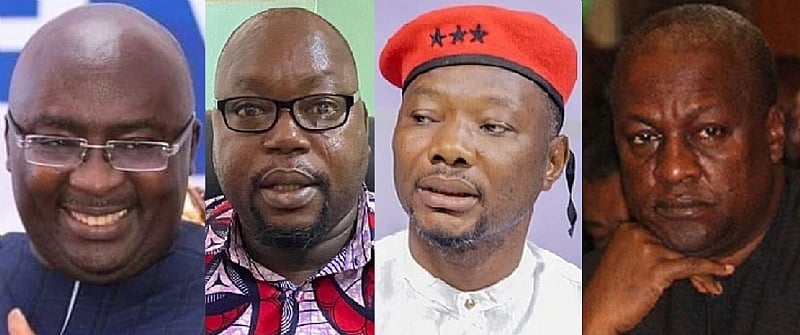The National Chairman of the People’s National Convention (PNC), Samson Asaki Awingobit, has expressed strong criticism towards John Dramani Mahama, the presidential candidate of the National Democratic Congress (NDC), for his lack of support for Bernard Mornah following Mornah’s disqualification from the upcoming 2024 presidential race by the Electoral Commission. Awingobit voiced his disappointment during an interview on Asempa FM’s Ekosiisen show, emphasizing that Mornah has historically been a dedicated supporter of the NDC. He highlighted that despite Mornah’s allegiance to the party, neither Mahama nor any NDC officials reached out to him to offer consolation or support after the disqualification.
In a striking contrast, Awingobit pointed out that Vice President Dr. Mahamudu Bawumia, who is the presidential candidate for the ruling New Patriotic Party (NPP), took the initiative to contact Mornah and express his condolences. This unexpected move by Bawumia led Awingobit to question the NDP’s commitment to its supporters, as the silence from the NDC post-disqualification made it appear that the party neglects its loyalists. Awingobit mentioned that the assumption within the PNC was that the NPP was somehow involved in orchestrating Mornah’s disqualification. However, Bawumia’s gesture of reaching out to Mornah offered a surprising insight, suggesting that the NPP was not behind the decision, which was previously speculated by some factions.
During the interview, Awingobit underscored Mornah’s long-standing loyalty and dedication to the NDC, noting the disappointment felt within the PNC regarding the lack of recognition and support from the party. He argued that a party should reward loyalty and stand by its members, especially in trying times such as an electoral disqualification. The apparent oversight from Mahama and the NDC, according to Awingobit, raises questions about the party’s values and its treatment of individuals who have historically stood by them. His remarks shed light on the notion that the NDC might take its supporters for granted, leaving them unsupported when faced with adversity.
Furthermore, Awingobit illustrated the disparity between the support extended by the NPP, particularly the assistance in the form of vehicles provided to Mornah and the PNC following the 2020 elections, and the indifference shown by the NDC. He emphasized that the NPP’s assistance highlighted a willingness to recognize the contributions of political allies. This realization contrasts sharply with Awingobit’s assertion that the NDC lacks the ability to reward loyalty effectively. By presenting these instances, he aims to showcase that political parties should foster stronger relationships with their supporters and treat them with the respect and acknowledgement they deserve.
The repercussions of these actions go beyond mere political commentary; they reflect a broader narrative about party loyalty and the treatment of allies within the political landscape. Awingobit’s statements suggest a potential shift in perceptions among party members and supporters, particularly regarding their options and alliances in future elections. His emphasis on Mahama’s failure to reach out to Mornah serves not only as a critique of the NDC’s approach but as a rallying call for political engagement and accountability among parties in Ghana. The dynamics of supporter loyalty and reciprocal treatment are crucial in shaping the political discourse moving forward.
In summary, Awingobit’s criticisms of Mahama illuminate significant concerns regarding the treatment of political supporters in Ghana’s electoral processes. By contrasting the responses from the NDC and NPP, he raises critical questions about loyalty, recognition, and the political integrity of parties towards their constituents. As the elections approach, these dynamics may influence voter perceptions and party strategies, ultimately impacting the electoral outcomes and shaping future political landscapes in the country.














